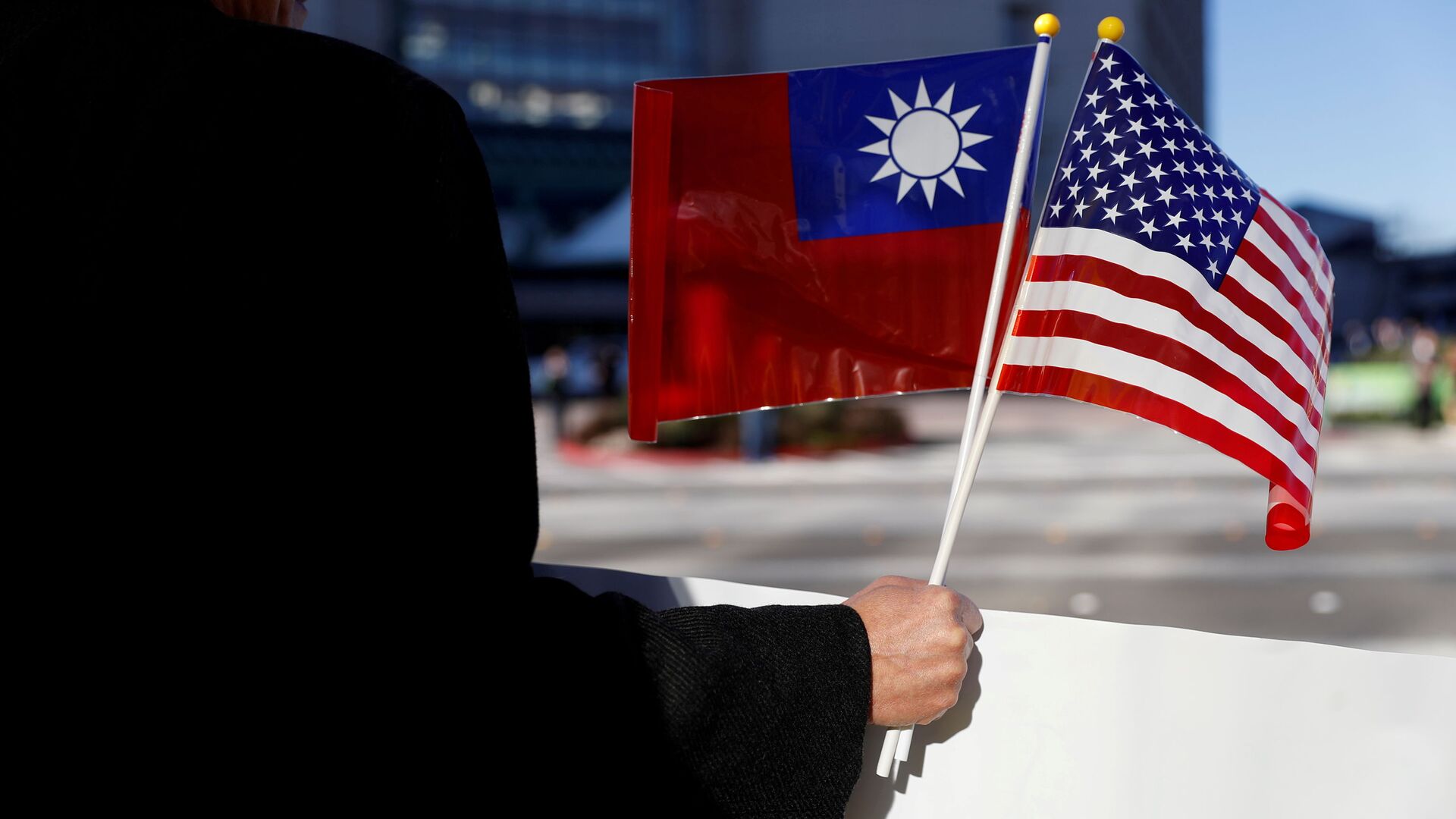US Lawmakers Introduce Bill to Rename Taipei’s DC Liaison to 'Taiwan Representative Office’
01:06 GMT 05.02.2022 (Updated: 12:43 GMT 19.06.2023)

© REUTERS / Stephen Lam
Subscribe
In an attempt to further enhance Taiwan’s standing, several US lawmakers have moved to change the name of the autonomous island’s liaison office in Washington, DC. Formally, the US recognizes Beijing’s sovereignty over the island and accepts its position that the Taipei government is a rebel force.
The Taiwan Representative Office Act was introduced in the US Senate on Friday by Sens. Bob Menendez (D-NJ), who chairs the Senate Foreign Relations Committee, and Marco Rubio (R-FL), and would change the name of the Taipei Economic and Cultural Representative Office (TECRO) in Washington, DC, to the Taiwan Representative Office. Companion legislation was introduced into the House by Reps. John Curts (R-UT) and Chris Pappas (D-NH).
“At a time of unprecedented international tension and as Beijing continues to seek to bully and coerce Taiwan, this important bill demonstrates the United States’ critical support for the people of Taiwan, and for Taiwan’s right, consistent with the Taiwan Relations Act, to determine its own future and to be able to enjoy greater respect and diplomatic space as a member of the international community,” Menendez said in a news release.
The Taiwan Relations Act was passed by Congress in 1980, in the aftermath of the US decision to formally switch its recognition of the legitimate Chinese government from Taipei to Beijing as a necessary precondition for opening diplomatic relations with the People’s Republic of China (PRC). The Taipei government, which formally calls itself the Republic of China (ROC), is all that remains of the Chinese republic that was formed after the last Chinese emperor abdicated the throne in 1912. The republic was overthrown on the mainland in 1949 by the rising communist revolution, which founded the PRC in Beijing.
Through the Taiwan Relations Act and TECRO, Washington has continued to funnel informal support to Taipei since 1980, offering it technical and economic support, as well as sales of military weaponry sufficient to defend its autonomy from Beijing. The PRC regards this as interference in Chinese internal affairs and support for a rebel group, as it sees Taiwan as an integral part of China.
Since 2017, when a pro-separatist government came to power in Taipei, the US has grown increasingly close, with top US officials visiting the island, although leaks revealed that US troops have been secretly training on Taiwan for more than a decade.
The contradiction in Washington’s position can be confusing even to its highest figures: in October 2021, US President Joe Biden accidentally claimed that the US was treaty-bound to defend Taiwan’s autonomy, although no such agreement exists. Days earlier, he also claimed that he and Chinese President Xi Jinping had agreed to abide by a nonexistent “Taiwan agreement.” The only agreement the US has with China about Taiwan is the three joint communiques, in all of which the US agreed that Taiwan is a part of China and that the PRC is the legitimate government of China.
Beijing has accused the US of irresponsibility by encouraging separatist elements in Taiwan, and made clear that if Taiwan does issue a declaration of independence, it would mean war.
